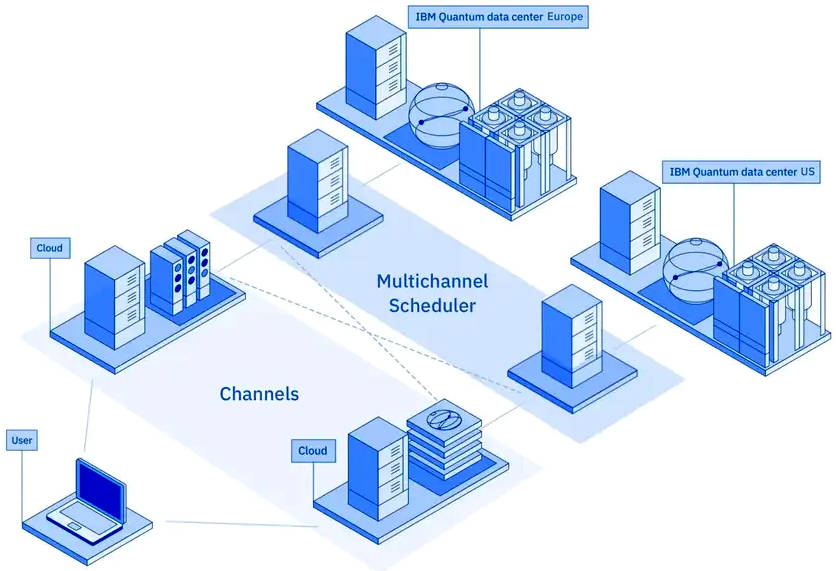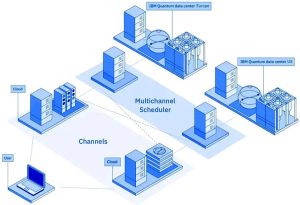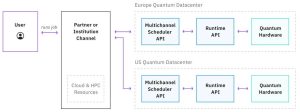

This will be its second, after a quantum data centre in New York.
Scheduled to operate in 2024, the German site will have “multiple IBM quantum computing systems, each with more than 100 qubits”, said IBM. “The data centre is being designed to help clients continue to manage their European data regulation requirements, including processing all job data within EU borders.”
Potential uses are being explored in material science, high energy physics, energy transition, sustainability and finance.
Already, the IBM Quantum Network has more than 60 European members accessing quantum computing via the cloud, including Bosch, CERN, DESY (Deutsches Elektronen-Synchrotron), E.ON, Fraunhofer-Gesellschaft and PSNC (Poznan Supercomputing and Networking Center).
No one is quite sure how to run programmes across quantum and classical resources, particularly when the resources and data are spread across countries governed by different data privacy laws. Nor it it certain how end-users can have a seemless experience while quantum-classical workflows are routed around the world.

“As an entirely new computational paradigm, cloud-based quantum computing still carries some practical questions,” said IBM. “So, alongside the data centre launch, we’re developing a software integration layer to help answer these questions,” said IBM. “Once we bring the European quantum data centre on-line, we will introduce the multichannel scheduler’.”
The scheduler will sits between the user, their cloud services and the quantum data centres. It will facilitate user-access to multi-region computing that uses IBM’s Qiskit Runtime primitives to run quantum programs, incorporating quantum resources from different regions depending on their needs or constraints, such as data sovereignty.
“This approach allows our clients and cloud providers in each of our quantum regions to employ classical services to run some of our middleware for quantum tools like circuit knitting, and having access to innovations like dynamic circuits,” said IBM. “The end user will still be able to run multi-cloud workflows incorporating other cloud service providers. The multichannel scheduler communicates with each of these channels while routing quantum workflows to the appropriate geographies.
Circuit knitting is a technique that partitions large quantum circuits into sub-circuits that fit on available devices. Classical simulation knits sub-results together to get an overall result.








